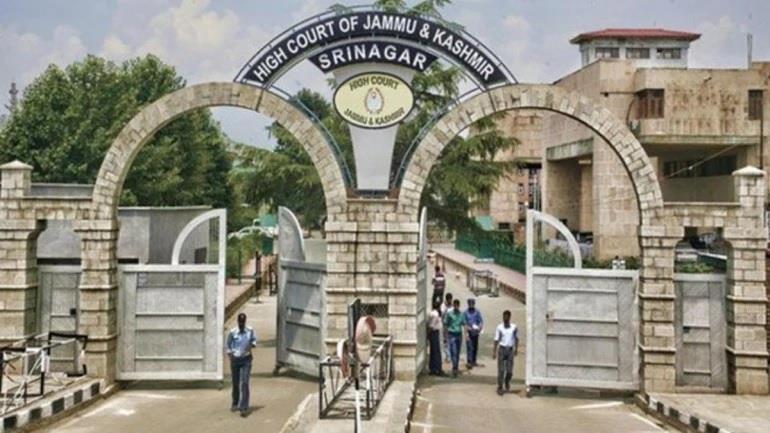J&K HC Sets Guidelines For Timely Contractor Payments
J&K High Court | File Photo
Srinagar- The High Court of J&K and Ladakh on Friday issued slew of directions to ensure the effective enforcement of contractual payments by the government, observing constitutional governance does not permit the State to hide behind bureaucratic excuses while depriving its contractors of their rightful dues.
Disposing of a petition by directing release of outstanding principal amount of Rs 97,87,012 to a contractor who had completed various works in 2017, a bench of Justice Wasim Sadiq Nargal also directed Chief Secretary to formulate and implement a Standard Operating Procedure (SOP) to ensure that no admitted dues arising from completed contractual works are withheld beyond a period of 60 (sixty) days from the date of submission of final bills provided there is no legal impediment and all the codal formalities are completed.
To ensure the effective enforcement of contractual payments and to uphold the principles of fairness and accountability, the court ordered that once the work has been executed strictly in accordance with the terms and conditions set out in the tender and the agreement, the authorities shall be under a clear statutory and contractual obligation to release the due payment without any undue or arbitrary delay.
After the execution of work, the court said, the authorities shall not be permitted to raise objections pertaining to administrative approvals, sanction of funds, or diversion of funds as grounds to withhold or delay payment.
In cases where the delay in payment is not attributable to the contractors, the court said that the authorities shall be liable to pay interest on the outstanding amount at the prevailing rates in nationalized banks, calculated from the date the payment fell due until the actual date of payment.
Regarding Personal Accountability for Malafide Conduct, the court ordered that where delay or withholding of payment arises from negligence, omission, or mala fide conduct on the part of any officer or official, the accrued interest shall be recovered from the salary or emoluments of such officer, thereby fixing personal accountability and deterring arbitrary exercise of power.
The court said a welfare State cannot legitimately plead“paucity of funds” when payments for works already executed and utilized are withheld.
“The principle of economic justice obliges the State to ensure that contractors, having fulfilled their part of the bargain, are not subjected to financial distress on account of arbitrary or habitual withholding of dues,” the court said, adding,“In cases of habitual or willful withholding, apart from interest, the Court may impose exemplary costs against the erring department, to be deposited with the State Legal Services Authority for utilisation towards public welfare purposes.”
In addition, the court directed the Chief Secretary directed to formulate and implement SOP to ensure that no admitted dues arising from completed contractual works are withheld beyond a period of 60 (sixty) days from the date of submission of final bills provided there is no legal impediment and all the codal formalities are completed.
“It is further made clear that while formulating and implementing the said SOP, the directions issued and observation made by this Court to ensure the effective enforcement of contractual payments expeditiously with a view to uphold the principle of fairness and accountability, shall be adhered to in its letter and spirit,” the court said and directed that a compliance affidavit to this effect shall be filed within six weeks.
The court underlined that constitutional governance does not permit the State to hide behind bureaucratic excuses while depriving its contractors of their rightful dues.
“The dignity of governance lies not merely in rule-making, but in timely honouring of obligations, duty which the State, as a model litigant, is expected to uphold scrupulously,” the court said.
The court rejected a plea of limitation raised by the authorities, underlining that once liability is admitted and the State continues to enjoy the fruits of the work executed by contractor, it cannot be permitted to turn around and deny payment on the plea of limitation.

Legal Disclaimer:
MENAFN provides the
information “as is” without warranty of any kind. We do not accept
any responsibility or liability for the accuracy, content, images,
videos, licenses, completeness, legality, or reliability of the information
contained in this article. If you have any complaints or copyright
issues related to this article, kindly contact the provider above.
Most popular stories
Market Research

- VCUK Launches New Private Equity And Venture Capital Initiative With A Focus On Europe
- Cregis Joins TOKEN2049 Singapore 2025
- Chipper Cash Powers 50% Of Bitcoin Transactions With Bitcoin Lightning Network Via Voltage
- Mutuum Finance (MUTM) Raises $16 Million While Advancing Toward Platform Release
- Pepeto Highlights $6.8M Presale Amid Ethereum's Price Moves And Opportunities
- Ozak AI Partners With Pyth Network To Deliver Real-Time Market Data Across 100+ Blockchains





















Comments
No comment